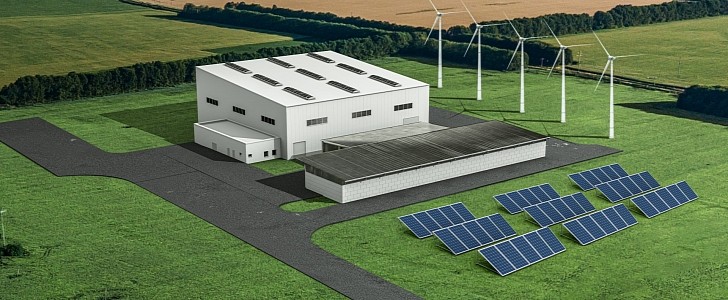German industry giant BASF will build a commercial-scale black mass plant in Schwarzheide. The facility that will be built in Germany will recycle EV batteries and will have a capacity of 15,000 tons per year. The goal of the facility is to close the loop for EV batteries, as it will turn old batteries into materials meant to build new ones.
The facility will be a central part of BASF's activity in Europe and the world, as the company already has a Cathode Active Materials (CAM) production and recycling hub in the town.
There are multiple vehicle manufacturers which have facilities in Germany, so the customer base is already there. BASF estimates that the facility will be operational in early 2024.
The world's biggest chemical company in the world has estimated it will hire about 30 new people for the new facility, which means that the plant will have an automated process end-to-end. It is likely that the new employees will just monitor the machines that will do the recycling process, or will assist them at a minimal level for some parts of the process.
The black mass that BASF mentions is the first part of the recycling process for batteries, and it involves the mechanical treatment of batteries. In other words, used batteries will be stripped of their cases, and their contents will be emptied and separated into what battery manufacturers call "black mass."
Since BASF is a chemical company, it has no problem separating the key materials found in black mass, which are lithium, cobalt, nickel, and manganese.
Once all the mentioned materials are separated, BASF will take them to its upcoming investment, a hydrometallurgical refinery, which will be built by the middle of this decade, and it will pump out materials to make new batteries.
Once EVs will end up being fitted with recycled batteries from the factory, their CO2 footprint will be reduced dramatically, as sourcing some of the raw materials currently used for EV batteries is a sustainability challenge.
Fortunately, if the process works for large batteries, it works just as well for smaller batteries, which means we should see more recycling in smaller batteries, while we are at it.
There are multiple vehicle manufacturers which have facilities in Germany, so the customer base is already there. BASF estimates that the facility will be operational in early 2024.
The world's biggest chemical company in the world has estimated it will hire about 30 new people for the new facility, which means that the plant will have an automated process end-to-end. It is likely that the new employees will just monitor the machines that will do the recycling process, or will assist them at a minimal level for some parts of the process.
The black mass that BASF mentions is the first part of the recycling process for batteries, and it involves the mechanical treatment of batteries. In other words, used batteries will be stripped of their cases, and their contents will be emptied and separated into what battery manufacturers call "black mass."
Since BASF is a chemical company, it has no problem separating the key materials found in black mass, which are lithium, cobalt, nickel, and manganese.
Once all the mentioned materials are separated, BASF will take them to its upcoming investment, a hydrometallurgical refinery, which will be built by the middle of this decade, and it will pump out materials to make new batteries.
Once EVs will end up being fitted with recycled batteries from the factory, their CO2 footprint will be reduced dramatically, as sourcing some of the raw materials currently used for EV batteries is a sustainability challenge.
Fortunately, if the process works for large batteries, it works just as well for smaller batteries, which means we should see more recycling in smaller batteries, while we are at it.







